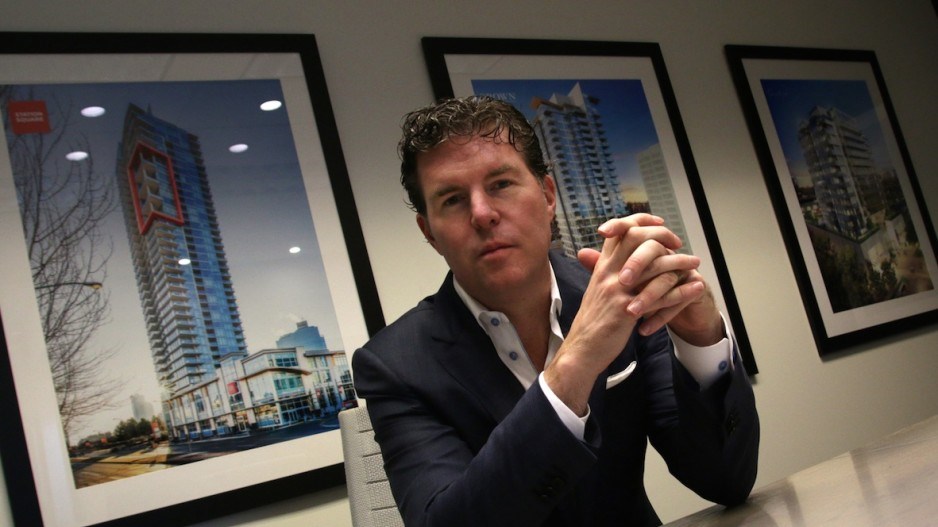The Beedie Development Group’s corporate name change to Beedie taps into the trend of companies adopting simpler and shorter names, but it is also part of a comprehensive rebranding that changes how the company wants to be viewed by customers.
Beedie’s September 27 announcement came the same week that Weight Watchers changed its name to WW, and Dunkin’ Donuts announced plans to become known simply as Dunkin’, starting in January.
Beedie’s two-year rebranding process resulted not just in a shorter name with a new logo and website, but it also came with a new slogan: Built for good.
“When they first came up with it, I thought that is perfect,” Beedie president Ryan Beedie told Business in Vancouver. “I loved it right away because it captures what we’re trying to do. We’re building something so there’s permanence. It’s built for good. You’ve done it right and, at the same time, you are building for the benefit of the community as a whole.”
Beedie and his late father Keith, who founded the company in 1954, are well known in philanthropic circles for donations that include a $22 million gift in 2011 to Beedie’s alma mater, Simon Fraser University’s business school, which is now known as the Beedie School of Business.
He told BIV that he will announce another major philanthropic endeavour later this year.
Branding expert and Your Brand Marketing president Ben Baker likes the Beedie rebranding because, he said, the tag line shows the company grasps how its brand is evolving.
“Rebranding is not just the company name,” Baker said. “It’s the story that goes behind it.”
He pointed to Nike (NYSE:NKE) as an example of an excellent brand because it does not simply identify a maker of sports clothing but more broadly stresses excellence and achievement.
Other prominent builders in Vancouver’s real estate sector have a mix of brands with corporate names that are sometimes one word, such as Cressey, but more frequently incorporate the words “properties,” “development” or “group.”
Cressey vice-president Hani Lammam said his company’s logo, which includes a stylized letter C with a building inside, underlines what sector the company is in.
He thinks the Beedie rebranding will go well because the Beedie name is already well known in the region.
The word “group” has been a fixture of many big Vancouver developers’ corporate identities – Onni Group and Rennie Group among them. But Beedie said he never warmed up to the name Beedie Group, which the company was known as until earlier this decade.
“I always hated ‘Beedie Group,’” he said. “What does that mean, ‘Beedie Group?’ Group of what? I never understood that, and it predates me.”
Around 2012, when Beedie’s company’s residential division started to expand rapidly, he wanted to discontinue the company’s logo and “change it up.” The company became the Beedie Development Group, but Beedie was not satisfied with the rebranding.
“It looked OK, but I never loved it,” he said. “It was like an interim thing that brought us to where we are today.”
Baker said transitional rebrandings can be wise, and Dunkin’ Donuts’ paring down of its name could be a step in the right direction if the company expands its offerings in the next few years. Otherwise, Baker said, he is confused with the move.
Another head-scratcher, he said, is Weight Watchers’ rebranding as WW.
The weight-loss products company has said that it wants to reflect a new focus on overall health and well-being, “but WW doesn’t do that,” Baker said.
“If you’re going to change your name, it has to be a name change that resonates in the direction you’re going. WW doesn’t mean anything.” •




